
Discover the Enchanting Douro Valley
Nestled in the northern region of Portugal, the Douro Valley is a treasure trove of natural beauty and rich cultural heritage. This UNESCO World Heritage site is renowned for its terraced vineyards that produce the world-famous Port wine. The Douro River meanders through the valley, offering breathtaking views and serene boat rides. A visit to the Douro Valley is incomplete without exploring its charming villages and historic quintas (wine estates). Here, you can indulge in wine tasting sessions and learn about the traditional methods of wine production. The valley's landscape is dotted with olive groves, almond trees, and picturesque farms, making it a perfect destination for nature lovers. The Douro Valley is also a haven for adventure enthusiasts. From hiking and cycling through scenic trails to taking a leisurely cruise along the Douro River, there are plenty of activities to keep you engaged. The local cuisine, featuring hearty meat dishes and fresh river fish, complements the region's fine wines, offering a delightful culinary experience.
Local tips in Douro Valley
- Visit during harvest season (September-October) for a unique wine-making experience.
- Take a boat cruise along the Douro River to fully appreciate the valley's stunning scenery.
- Stay in a traditional quinta to enjoy authentic hospitality and local wine.
- Explore the smaller villages such as Pinhão and Peso da Régua for a more intimate experience.
- Don't forget to try local dishes like 'francesinha' and 'bacalhau à brás' at regional restaurants.
Discover the Enchanting Douro Valley
Nestled in the northern region of Portugal, the Douro Valley is a treasure trove of natural beauty and rich cultural heritage. This UNESCO World Heritage site is renowned for its terraced vineyards that produce the world-famous Port wine. The Douro River meanders through the valley, offering breathtaking views and serene boat rides. A visit to the Douro Valley is incomplete without exploring its charming villages and historic quintas (wine estates). Here, you can indulge in wine tasting sessions and learn about the traditional methods of wine production. The valley's landscape is dotted with olive groves, almond trees, and picturesque farms, making it a perfect destination for nature lovers. The Douro Valley is also a haven for adventure enthusiasts. From hiking and cycling through scenic trails to taking a leisurely cruise along the Douro River, there are plenty of activities to keep you engaged. The local cuisine, featuring hearty meat dishes and fresh river fish, complements the region's fine wines, offering a delightful culinary experience.
When is the best time to go to Douro Valley?
Iconic landmarks you can’t miss
NaturWaterPark - Parque de Diversões do Douro, Lda
Experience the ultimate family fun at NaturWaterPark in Vila Real, where thrilling water attractions meet serene camping in a stunning natural setting.
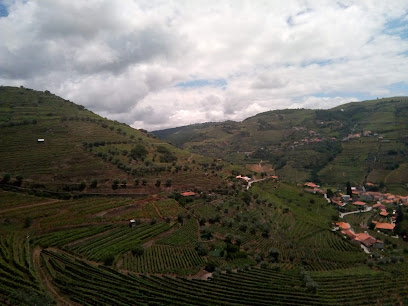
Fundação da Casa de Mateus
Explore Casa de Mateus in the Douro Valley—an exquisite blend of baroque architecture, serene gardens, and rich Portuguese history.
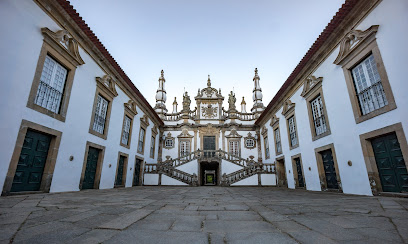
Parque Natural do Douro Internacional
Explore the breathtaking landscapes and diverse wildlife of Parque Natural do Douro Internacional, a must-visit nature reserve in Portugal.
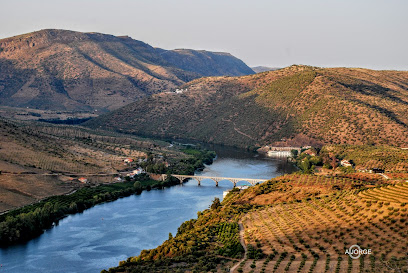
Parque Arqueológico do Vale do Côa
Discover the ancient rock art and stunning landscapes of Parque Arqueológico do Vale do Côa, a UNESCO World Heritage site in Portugal's Douro Valley.
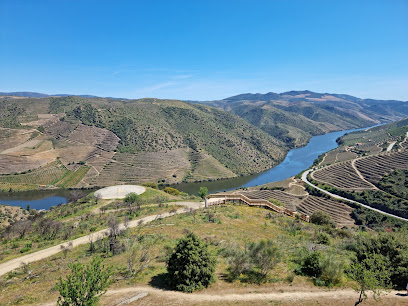
Viewpoint of São Leonardo de Galafura
Experience the breathtaking panoramic views of the Douro Valley at the Viewpoint of São Leonardo de Galafura, a must-see scenic spot in Portugal.
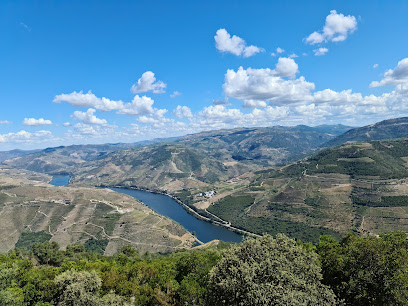
Douro Museum
Explore the rich heritage and wine culture of the Douro Valley at the Douro Museum, a captivating destination for all visitors.
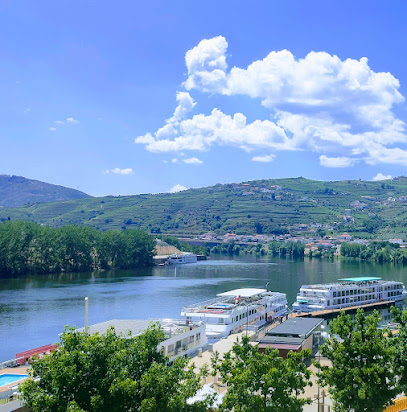
Douro Royal Valley Hotel & Spa
Experience the luxury of Douro Royal Valley Hotel & Spa – a perfect blend of relaxation, gourmet dining, and breathtaking nature in the heart of Portugal's wine region.

Miradouro Casal De Loivos
Experience breathtaking views and serene landscapes at Miradouro Casal De Loivos, the ultimate scenic spot in Portugal's enchanting Douro Valley.
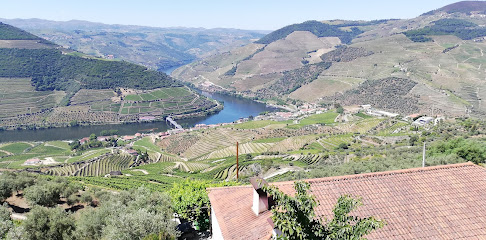
Six Senses Douro Valley
Discover the ultimate luxury escape at Six Senses Douro Valley, where stunning landscapes meet world-class hospitality in Portugal's breathtaking wine country.

Quinta da Pacheca
Discover the serene beauty and rich winemaking tradition of Quinta da Pacheca in Portugal's stunning Douro Valley, a perfect retreat for wine lovers and nature enthusiasts.

Hotel Douro Scala
Discover luxury and breathtaking views at Hotel Douro Scala, your perfect retreat in the stunning Douro Valley, Portugal.

Miradouro de São Salvador do Mundo
Explore the breathtaking views of Douro River Valley at Miradouro de São Salvador do Mundo, a must-visit scenic spot in Portugal.
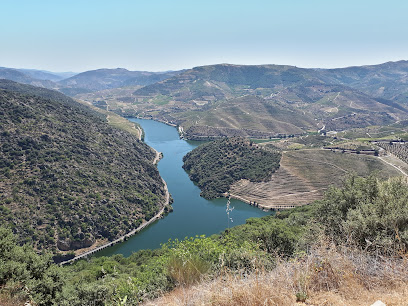
Nature Reserve Douro Estuary Site
Explore the breathtaking Douro Estuary Nature Reserve, a haven for wildlife and tranquility in Portugal's stunning landscapes.

The Vintage House Hotel, Douro
Discover the beauty of the Douro Valley at The Vintage House Hotel, where luxury meets nature in a breathtaking setting.

Quinta do Bomfim
Discover the enchanting Quinta do Bomfim in the Douro Valley, where exquisite Port wines and breathtaking landscapes await your exploration.
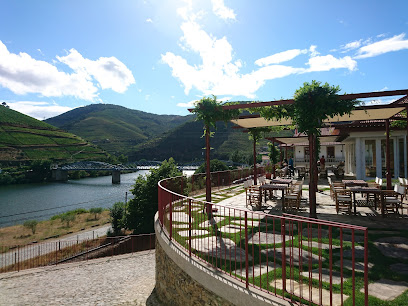
Unmissable attractions to see
Santuário de Nossa Senhora dos Remédios
Explore the breathtaking Santuário de Nossa Senhora dos Remédios, a baroque masterpiece offering stunning views and a serene atmosphere in Lamego, Portugal.
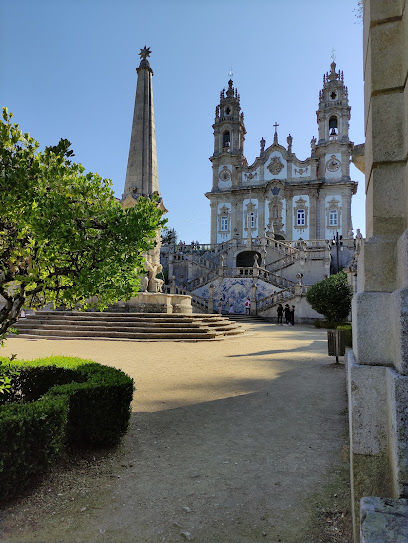
Parque Natural do Douro Internacional
Discover the stunning landscapes and rich biodiversity of Parque Natural do Douro Internacional, a haven for nature lovers and adventure seekers.
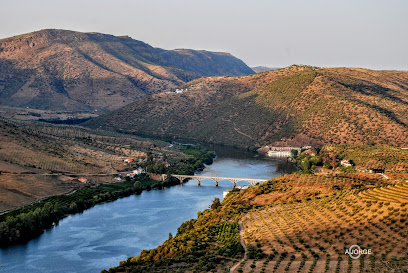
Parque Arqueológico do Vale do Côa
Explore the stunning archaeological wonders of Parque Arqueológico do Vale do Côa, where ancient rock art meets breathtaking natural landscapes in Portugal.
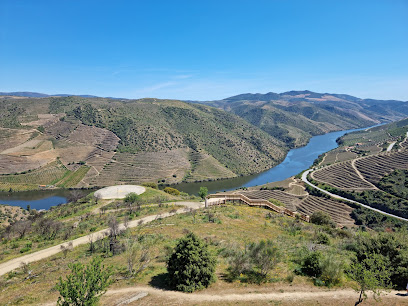
Pérgola da Nevogilde
Experience breathtaking views and serene gardens at Pérgola da Nevogilde, a must-visit historical landmark in Porto, Portugal.
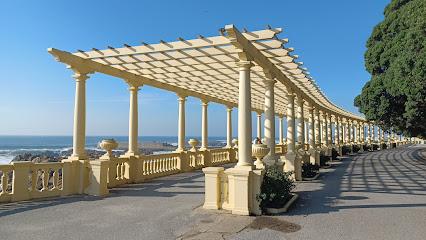
Praia dos Ingleses
Experience the sun-kissed shores and vibrant atmosphere of Praia dos Ingleses, a premier beach destination in Porto, Portugal, perfect for relaxation and adventure.
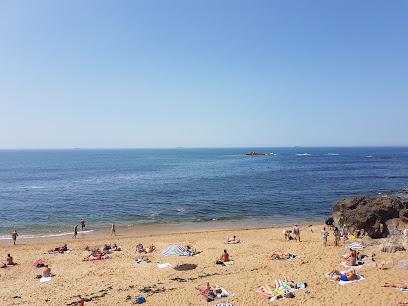
Scenic spot Frecha da Mizarela
Experience the stunning waterfalls and breathtaking landscapes of Frecha da Mizarela, a must-visit scenic spot in Arouca, Portugal.
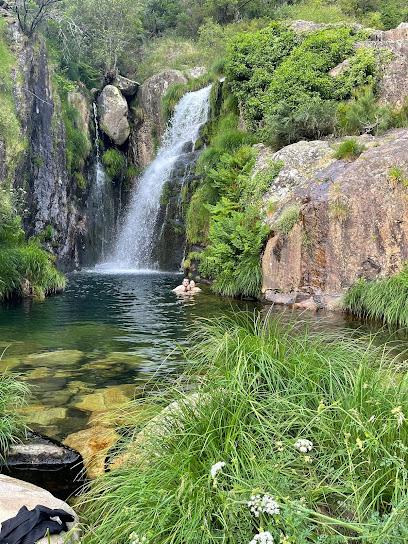
Miradouro Casal De Loivos
Discover the stunning panoramic views of the Douro Valley at Miradouro Casal De Loivos, a top scenic spot for nature lovers and photographers alike.
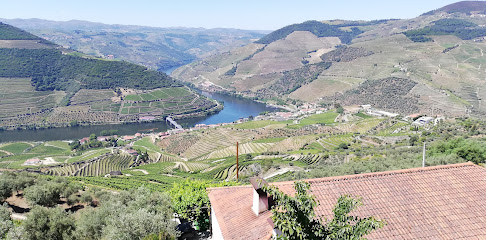
Bioria Estarreja
Experience tranquility and natural beauty at Bioria Estarreja, a stunning nature preserve in Salreu, Portugal, perfect for eco-tourism and relaxation.
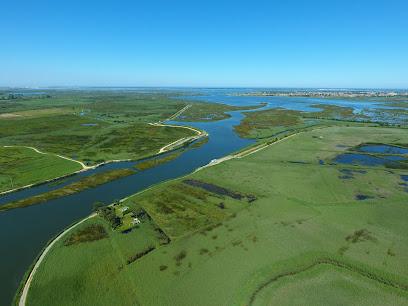
Igreja da Santíssima Trindade
Discover the architectural beauty and spiritual ambiance of Igreja da Santíssima Trindade, a must-see Catholic church in the heart of Porto.
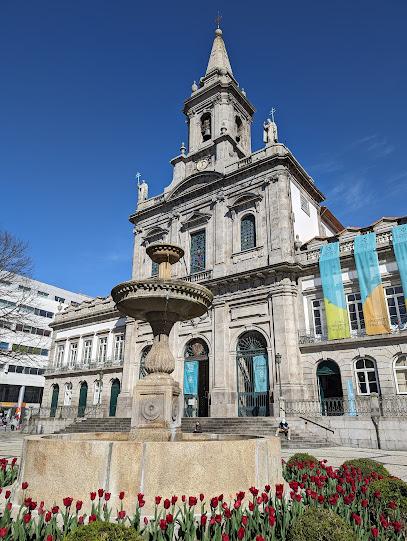
Ponte Rodoviaria da Regua
Discover the breathtaking Ponte Rodoviaria da Régua, a stunning bridge with panoramic views of the Douro River and surrounding vineyards.
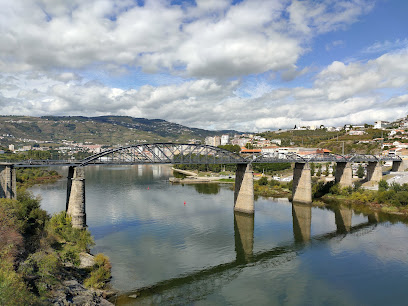
Burmester
Explore the rich history and exquisite flavors of Portuguese port wine at Burmester, a premier winery and cultural gem in Vila Nova de Gaia.
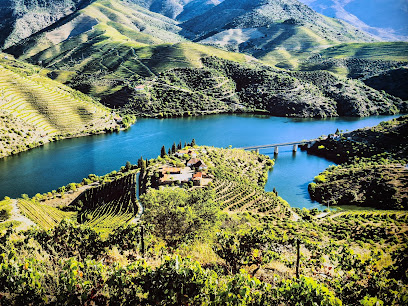
Living Tours
Explore Porto's beauty through curated tours with Living Tours - your gateway to the city's rich culture and heritage.
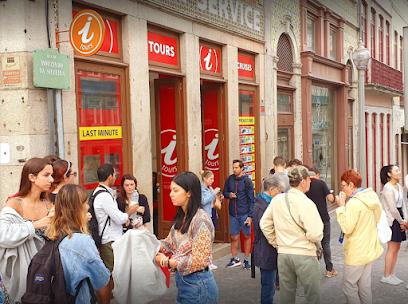
International Biological Station DueroDouro
Experience the breathtaking beauty and diverse wildlife at the International Biological Station DueroDouro, a must-visit for nature lovers and birdwatchers alike.
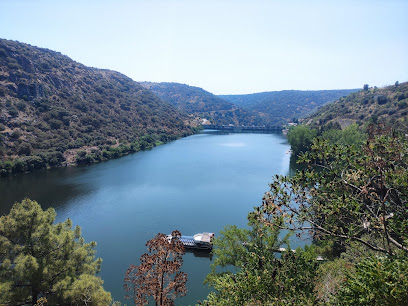
Panorâmica do Detrelo da Malhada
Experience the stunning views at Panorâmica do Detrelo da Malhada, a scenic spot in Moldes, Portugal, perfect for nature lovers and photographers.
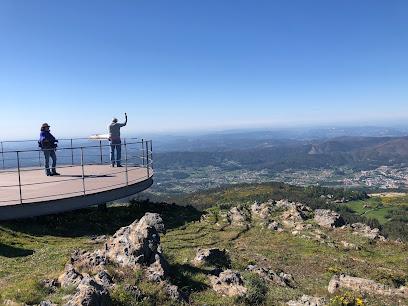
Caldas de aregos
Discover the serene beauty and rejuvenating thermal waters of Caldas de Aregos, a perfect getaway for relaxation and wellness in Portugal.
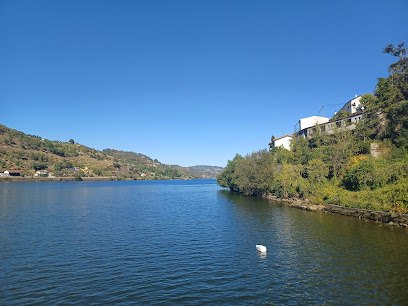
Essential places to dine
Castas e Pratos
Discover exquisite local cuisine and fine wines at Castas e Pratos in Peso da Régua - a true gem in Portugal's Douro Valley.
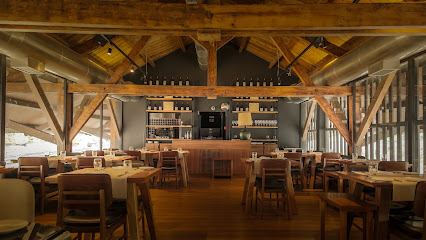
DOC - Chef Rui Paula
Experience culinary excellence with stunning river views at DOC - Chef Rui Paula in Portugal's enchanting Douro Valley.
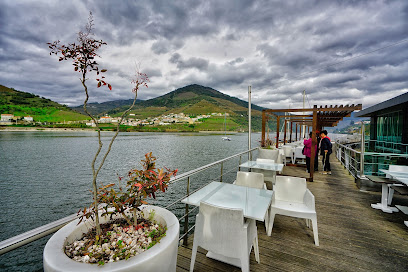
Barris Do Douro Restaurante
Experience authentic Portuguese cuisine at Barris Do Douro Restaurante with stunning river views in Vila Nova de Gaia.
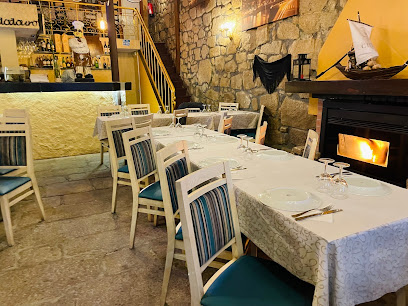
Veladouro
Experience authentic Portuguese cuisine at Veladouro with stunning views of the Douro River – a culinary gem in Pinhão.
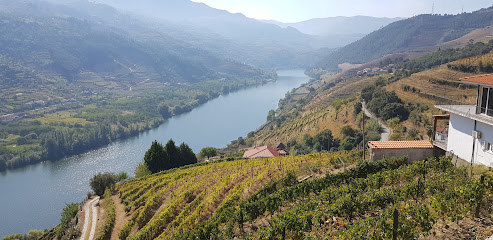
Manjar do Douro
Experience authentic Portuguese cuisine at Manjar do Douro in Lamego - where every dish celebrates the rich flavors of the Douro Valley.
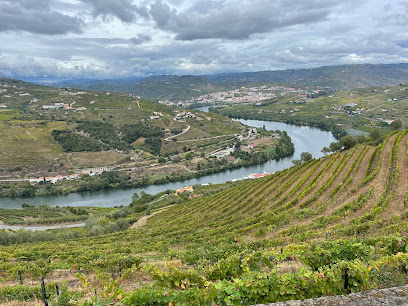
Douro Velho
Experience authentic Portuguese cuisine at Douro Velho with stunning river views and a vibrant atmosphere perfect for any dining occasion.
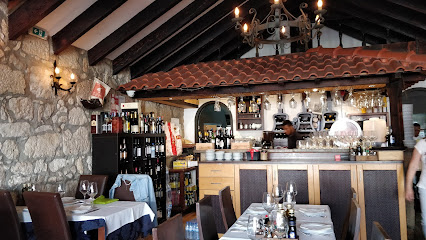
Figurino do Douro
Discover authentic Portuguese cuisine with breathtaking views at Figurino do Douro in Melres.
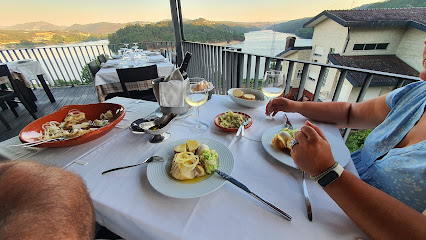
A Ver O Douro
Experience authentic Portuguese cuisine with stunning views at A Ver O Douro in Marco de Canaveses.
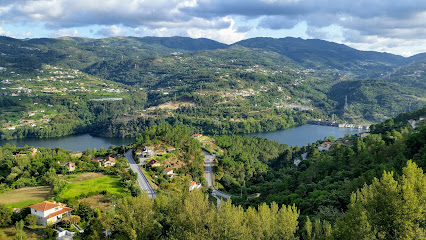
The River
Experience fine dining at The River in Peso da Régua - where exquisite cuisine meets breathtaking views in Portugal's scenic Douro Valley.
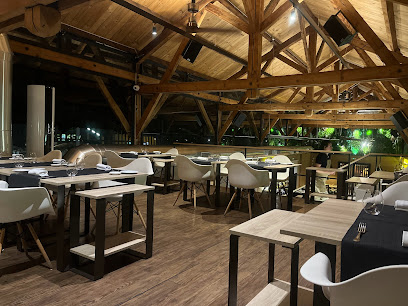
Tasca da Quinta
Experience authentic Portuguese cuisine at Tasca da Quinta in Peso da Régua - a must-visit culinary destination in Douro Valley.
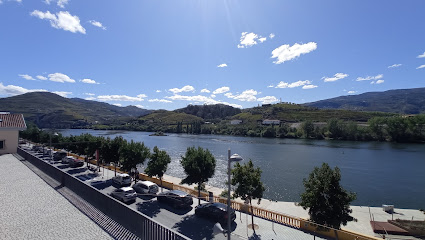
Writer's Place
Experience authentic Portuguese cuisine with stunning views at Writer's Place in Pinhao - a true gem along the Douro River.
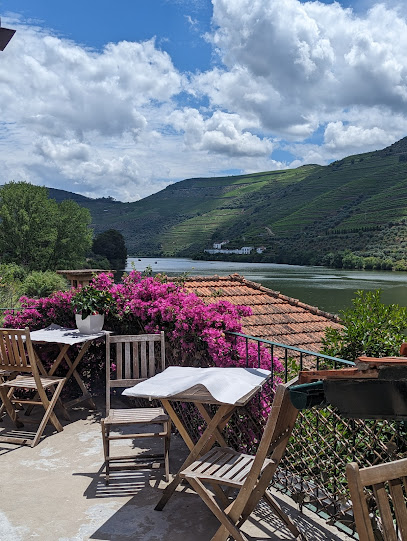
Douro In
Experience authentic Portuguese cuisine at Douro In, where local flavors meet stunning views in Peso da Régua.
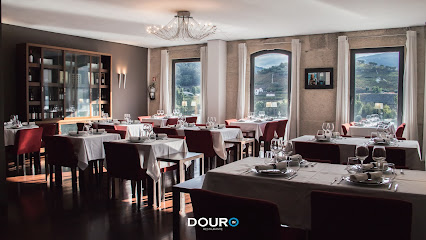
Solar Douro
Experience authentic Portuguese cuisine with stunning views at Solar Douro in Santa Cruz do Douro.
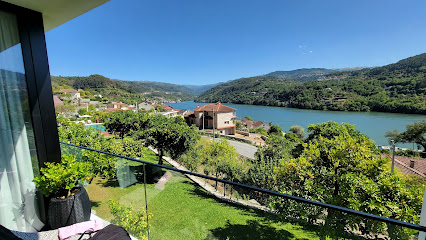
Toca da Raposa
Discover authentic Portuguese flavors at Toca da Raposa in Douro Valley—where culinary excellence meets breathtaking views.
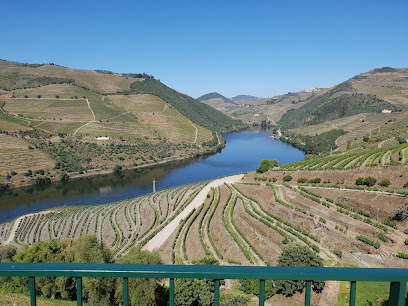
Restaurante Vista do Douro
Experience authentic Portuguese cuisine with stunning views at Restaurante Vista do Douro in Peso da Régua.
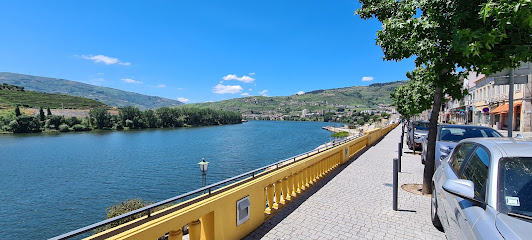
Markets, malls and hidden boutiques
ViaCatarina Shopping
Explore the best of shopping, dining, and entertainment at ViaCatarina Shopping, Porto's vibrant retail hub filled with local charm.
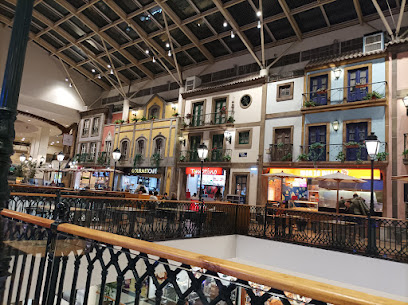
Pingo Doce
Discover the vibrant Pingo Doce hypermarket in Miranda do Douro, where local flavors and everyday essentials meet for an unforgettable shopping experience.
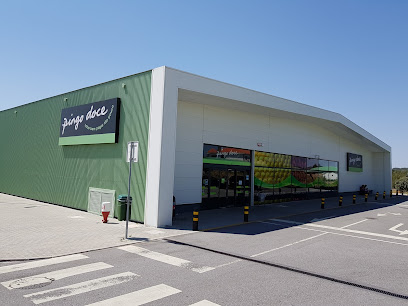
Intermarché Oliveira do Douro
Discover local flavors and essentials at Intermarché Oliveira do Douro, your go-to supermarket for a taste of Portuguese culture.
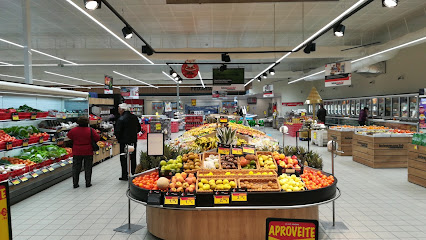
Daily Tours - Douro Valley, Wine Tastings, Arouca Bridge, Gerês National Park, Walking Tours
Discover the stunning Douro Valley, a UNESCO World Heritage site, famous for its breathtaking landscapes and exquisite wine tasting experiences.
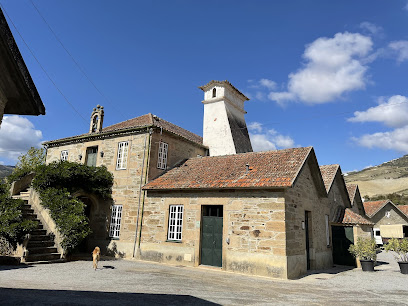
Pingo Doce Oliveira do Douro
Explore Pingo Doce Oliveira do Douro for an authentic Portuguese shopping experience, offering fresh produce, local delicacies, and everyday essentials.
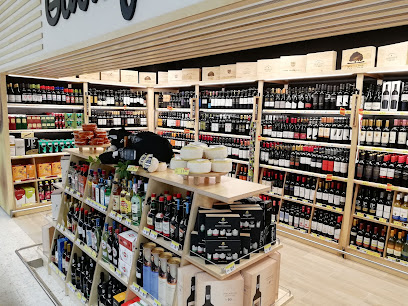
Quinta do Tedo
Discover the charm of Quinta do Tedo, a winery in the Douro Valley offering exquisite wines, delicious cuisine, and stunning views in a tranquil setting.
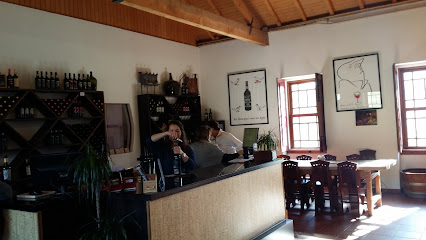
PORTOLOGIA - La Maison des Port
Discover PORTOLOGIA - La Maison des Port, where exceptional local wines and a cozy atmosphere await in Vila Nova de Gaia.
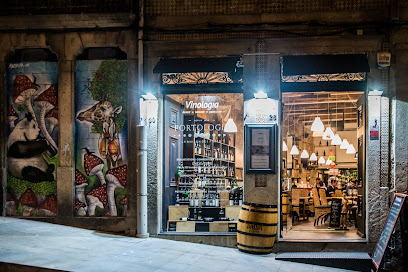
Kopke Wine House
Explore Portugal's wine heritage at Kopke Wine House, where history meets exquisite tasting experiences in Vila Nova de Gaia.
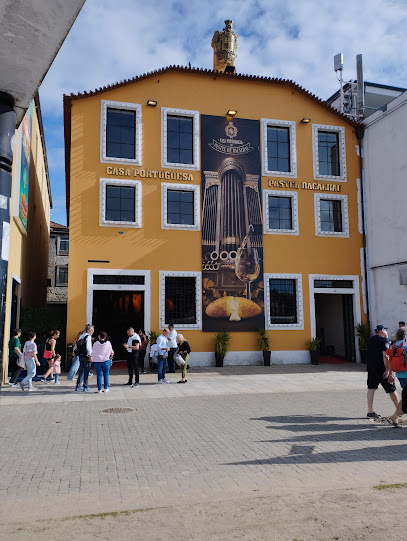
Casa do GALO
Explore the exquisite selection of wines at Casa do GALO, Vila Nova de Gaia's premier wine store showcasing the best of Portuguese viticulture.
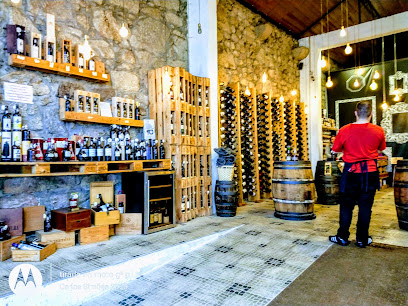
Quinta do Pôpa
Discover the enchanting Quinta do Pôpa: a premier winery in Douro Valley offering exquisite wine tastings and immersive vineyard tours.
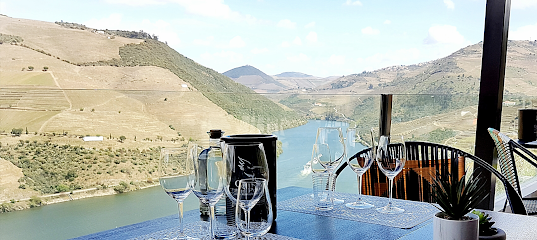
A&D Wines - Quinta de Santa Teresa
Discover the exquisite flavors of Portuguese wines at A&D Wines - Quinta de Santa Teresa, a charming winery nestled in the scenic Douro Valley.
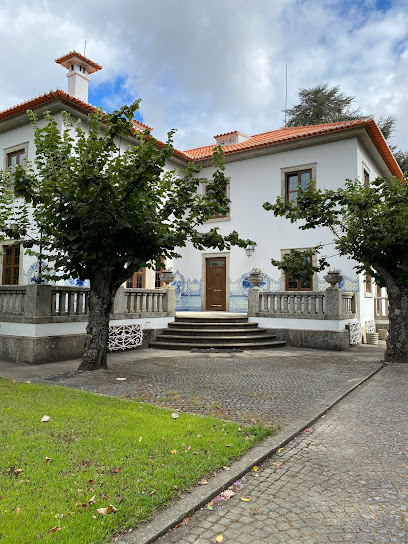
Loja Tradições
Explore Loja Tradições in Porto for unique souvenirs and local crafts that beautifully capture the essence of Portugal's vibrant culture.
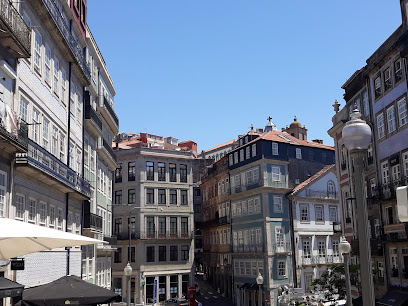
Princesa do Douro - Pastelaria e Salão de Chã, Lda.
Discover the sweet side of Pinhão at Princesa do Douro, where traditional Portuguese pastries meet a cozy atmosphere in the heart of the Douro Valley.
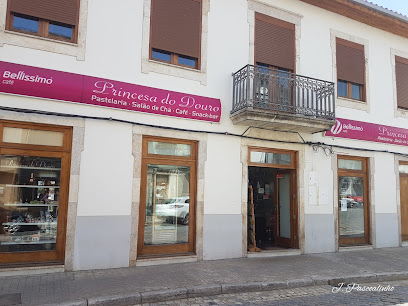
Fernandes, Mattos & Ca., Lda.
Explore Fernandes, Mattos & Ca., Lda. in Porto for exquisite kitchen supplies and linens, perfect for unique souvenirs and home decor.
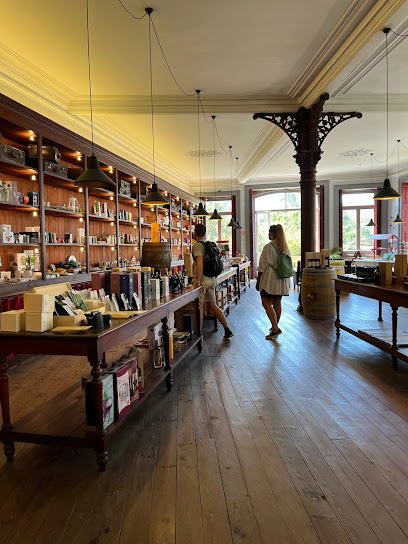
Quinta de Tourais
Experience the essence of Portuguese wine culture at Quinta de Tourais, where enchanting vineyards meet rustic hospitality in Lamego.
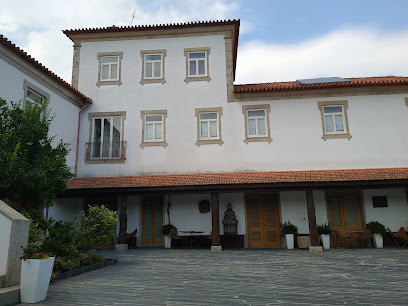
Essential bars & hidden hideouts
Castas e Pratos
Discover the exquisite fusion of local flavors and fine wines at Castas e Pratos, Peso da Régua's premier dining destination.
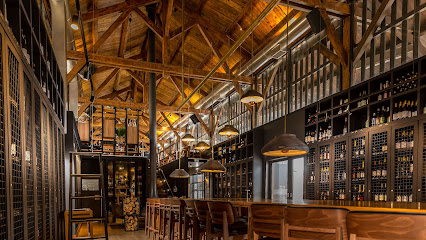
Terraplana Café
Discover the unique blend of cocktails and pizza at Terraplana Café, a culinary gem in Porto's vibrant nightlife.
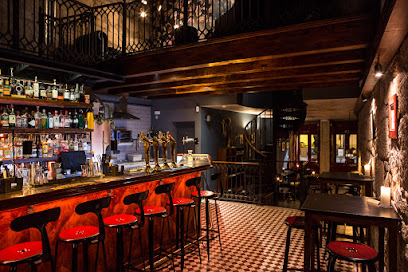
Wine Quay Bar
Discover the essence of Porto's wine culture at Wine Quay Bar, offering stunning river views and an exquisite selection of wines.
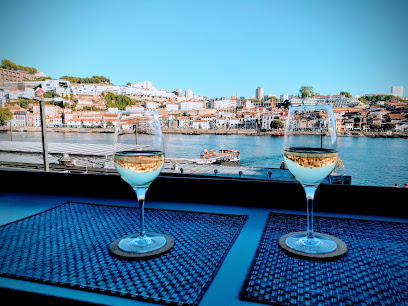
Aneto & Table
Experience the authentic flavors of Portugal at Aneto & Table, a delightful restaurant and wine bar in Peso da Régua.
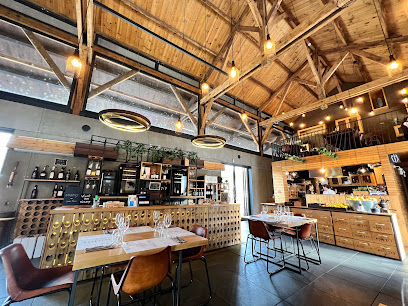
Dour'Art
Discover Dour'Art in Valbom, Portugal – a cozy bar offering exquisite drinks and a lively atmosphere perfect for an unforgettable night out.
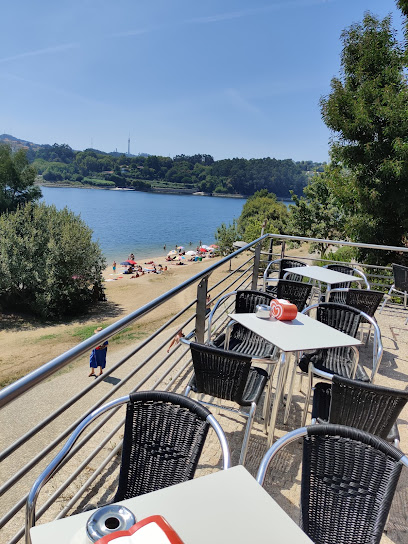
Foz do Távora Bar
Discover Foz do Távora Bar, a serene retreat in Tabuaço offering stunning river views, local wines, and a welcoming atmosphere for all travelers.
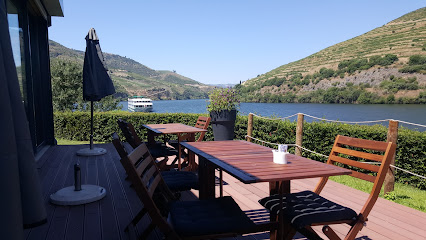
Douro In
Experience the flavors of the Douro Valley at Douro In, a charming bar and restaurant in Peso da Régua, Portugal.
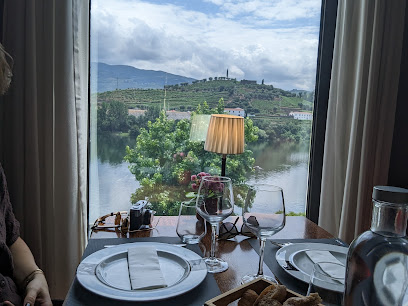
Rodrigo's Port Wine Shop (Quinta do Portal)
Explore the rich heritage of Portuguese port wines at Rodrigo's Port Wine Shop in Vila Nova de Gaia, a must-visit for every wine enthusiast.
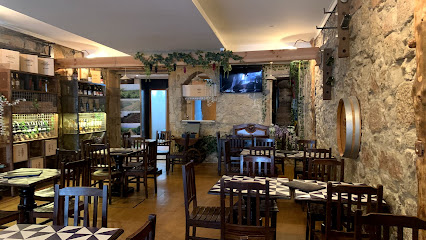
Lado Wines - Porto & Douro Wine bar & Tastings by AVEPOD
Experience the finest Douro Valley wines at Lado Wines, Porto's premier wine bar, known for its exceptional tastings and cozy ambiance.
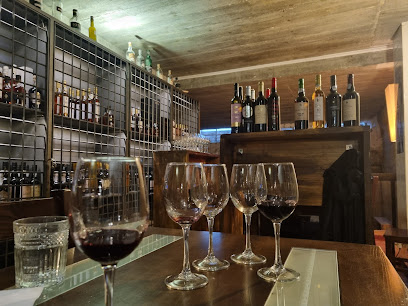
TiPO BAR
Discover TiPO BAR in Porto – a cocktail lover's paradise blending innovative drinks, vibrant atmosphere, and local charm.
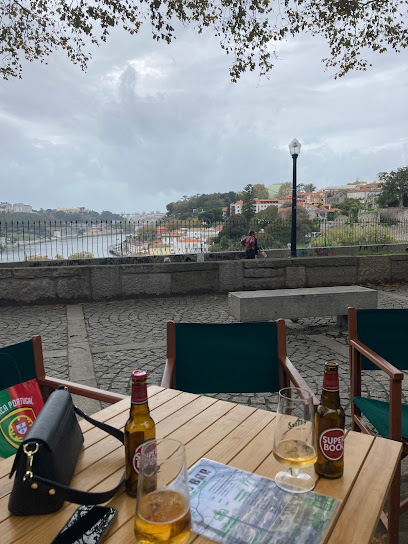
Dourum Experience
Discover the essence of Portuguese wine culture at Dourum Experience, a charming wine bar in Vila Nova de Gaia offering exquisite tastings and stunning views.
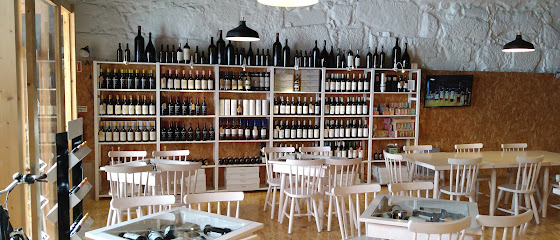
Old Rock Caffe
Discover the cozy charm of Old Rock Caffe in Lamego, where delightful drinks meet a vibrant atmosphere for an unforgettable experience.
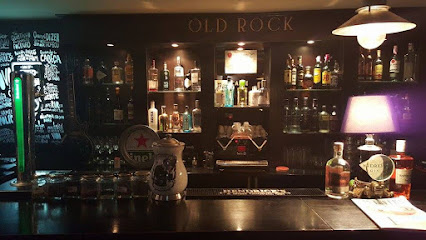
Trinos Bar
Experience the vibrant atmosphere of Trinos Bar in Miranda do Douro, where local drinks and friendly service create unforgettable moments.
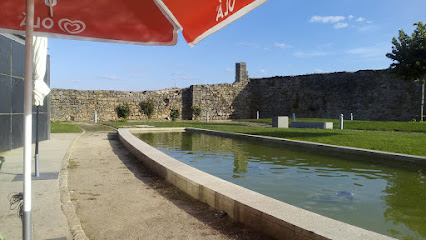
Douro Sky Lounge
Experience breathtaking views and exquisite cuisine at Douro Sky Lounge, Porto's premier rooftop destination for unforgettable moments.
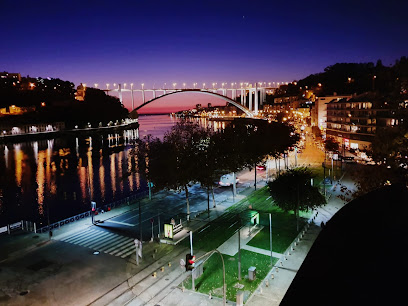
Local Phrases about Douro Valley
-
- HelloOlá
[oh-lah] - GoodbyeAdeus
[ah-deh-oos] - YesSim
[seem] - NoNão
[nah-oh] - Please/You're welcomePor favor/De nada
[pohr fah-vohr/deh nah-dah] - Thank youObrigado(a)
[oh-bree-gah-doo(dah)] - Excuse me/SorryCom licença/Desculpe
[kohm lee-sen-sah/deh-skool-peh] - How are you?Como está?
[koh-moh ehs-tah] - Fine. And you?Bem. E você?
[behn/eh voh-seh] - Do you speak English?Fala inglês?
[fah-lah een-glehs] - I don't understandNão entendo
[nah-oh ehn-tehn-doh]
- HelloOlá
-
- I'd like to see the menu, pleaseGostaria de ver o menu, por favor
[gohs-tah-ree-ah deh vehr oo meh-noo/pohr fah-vohr] - I don't eat meatNão como carne
[nah-oh koh-moh kahr-neh] - Cheers!Saúde!
[sow-deh] - I would like to pay, pleaseGostaria de pagar, por favor
[gohs-tah-ree-ah deh pah-gahr/pohr fah-vohr]
- I'd like to see the menu, pleaseGostaria de ver o menu, por favor
-
- Help!Socorro!
[soh-koh-roo] - Go away!Vá embora!
[vah ehm-boh-rah] - Call the Police!Chame a Polícia!
[shah-meh ah poh-lee-see-ah] - Call a doctor!Chame um médico!
[shah-meh oong meh-dee-koo] - I'm lostEstou perdido(a)
[ehs-toh pehr-dee-doo(dah)] - I'm illEstou doente
[ehs-toh doo-ehn-teh]
- Help!Socorro!
-
- I'd like to buy...Gostaria de comprar...
[gohs-tah-ree-ah deh kohm-prahr] - I'm just lookingEstou só a ver
[ehs-toh soh ah vehr] - How much is it?Quanto custa?
[kwahn-toh koosh-tah] - That's too expensiveIsso é muito caro
[ee-soh eh moo-eetoo kah-roo] - Can you lower the price?Pode baixar o preço?
[poh-deh bahy-shahr oo preh-soo]
- I'd like to buy...Gostaria de comprar...
-
- What time is it?Que horas são?
[keh oh-rah shawn] - It's one o'clockÉ uma hora
[eh oo-mah oh-rah] - Half past (10)Meia (dez)
[meh-yah (dez)] - MorningManhã
[mah-nyah] - AfternoonTarde
[tahr-deh] - EveningNoite
[noy-teh] - YesterdayOntem
[ohn-tehm] - TodayHoje
[oh-zheh] - TomorrowAmanhã
[ah-mah-nyah] - 1Um
[oom] - 2Dois
[doh-ees] - 3Três
[trehs] - 4Quatro
[kwah-troo] - 5Cinco
[seen-koo] - 6Seis
[saysh] - 7Sete
[seh-teh] - 8Oito
[oy-toh] - 9Nove
[noh-veh] - 10Dez
[dez]
- What time is it?Que horas são?
-
- Where's a/the...?Onde fica o/a...?
[ohn-deh fee-kah ooh/ah] - What's the address?Qual é o endereço?
[kwahl eh ooh ehn-deh-reh-soo] - Can you show me (on the map)?Pode mostrar-me (no mapa)?
[poh-deh mohs-trahr-meh (noo mah-pah)] - When's the next (bus)?Quando é o próximo (autocarro)?
[kwahn-doo eh ooh proh-ksih-moo (ow-toh-kah-roo)] - A ticket (to ....)Um bilhete (para ...)
[oom bee-lyeh-teh (pah-rah)]
- Where's a/the...?Onde fica o/a...?
History of Douro Valley
-
The Douro Valley's history of wine production dates back to Roman times, when the first vineyards were planted along the riverbanks. The region's steep terraces and unique microclimate have made it ideal for viticulture, and it has been producing wine for over 2,000 years.
-
In 1756, the Douro Valley became the world's first demarcated and regulated wine region, established by the Marquis of Pombal. This move was aimed at protecting the quality and authenticity of Port wine, a major export product of Portugal.
-
In the 17th and 18th centuries, British merchants played a crucial role in the development of the Port wine industry in the Douro Valley. They established trading companies and built the iconic Port wine cellars in Vila Nova de Gaia, greatly influencing the region's economic and cultural landscape.
-
In the late 19th century, the Douro Valley's vineyards were devastated by the phylloxera pest, which led to significant economic hardship. The region eventually recovered by grafting Portuguese vines onto American rootstocks, which were resistant to the pest.
-
In 2001, the Douro Valley was designated a UNESCO World Heritage Site in recognition of its cultural landscape, which includes the traditional vineyard terraces, historical wine estates, and the picturesque Douro River. This status has helped to preserve the region's heritage and promote sustainable tourism.
-
Quintas, or wine estates, have been central to the Douro Valley's wine production for centuries. Many of these estates have been family-owned for generations, and they continue to produce some of the world's finest Port and table wines. Their historic manor houses and cellars offer a glimpse into the region's rich winemaking traditions.
Douro Valley Essentials
-
The Douro Valley is located in northern Portugal. The nearest international airports are Francisco Sá Carneiro Airport in Porto and Humberto Delgado Airport in Lisbon. From Porto, you can take a direct train to Régua or Pinhão, which are central towns in the Douro Valley. The train journey offers stunning views of the Douro River and the surrounding vineyards. Alternatively, you can rent a car and drive from Porto or Lisbon, which allows for more flexibility in exploring the region.
-
Once in the Douro Valley, you can use a combination of trains, boats, and cars to explore the area. The Linha do Douro is a scenic train route that runs along the Douro River, connecting Porto to the heart of the valley. Local bus services are limited, so renting a car or hiring a private driver can be more convenient for visiting the vineyards and smaller villages. Additionally, boat cruises along the Douro River are a popular way to see the valley from a different perspective.
-
The official currency in Portugal is the Euro (EUR). Credit and debit cards are widely accepted in hotels, restaurants, and shops in the Douro Valley. However, it is advisable to carry some cash, especially when visiting smaller establishments or rural areas. ATMs are available in larger towns like Régua and Pinhão, where you can withdraw cash if needed.
-
The Douro Valley is generally a safe destination for tourists. However, standard precautions should be taken, such as avoiding isolated areas at night and being mindful of personal belongings in crowded places. There are no specific high-crime areas targeting tourists, but it is always best to stay vigilant and aware of your surroundings.
-
In case of emergency, dial 112 for immediate assistance, which connects you to police, fire, and medical services. Major towns in the Douro Valley have medical facilities and pharmacies where you can get help for minor health issues. It is also recommended to have travel insurance that covers medical emergencies. Know the location of the nearest hospital or health center to your accommodation.
-
Fashion: Do dress comfortably but stylishly; casual wear is fine for most places, but dining in upscale restaurants may require smart-casual attire. Religion: Do respect local religious customs; when visiting churches, dress modestly and keep quiet. Public Transport: Do be polite and respectful; offer your seat to elderly passengers. Don't talk loudly or disturb others on public transport. Greetings: Do greet people with a 'Bom dia' (Good morning) or 'Boa tarde' (Good afternoon). A handshake is an appropriate form of greeting. Eating & Drinking: Do try local wines and traditional dishes. Accept food and drink offerings graciously. Don't rush your meals; dining is a leisurely activity in Portugal.
-
To experience the Douro Valley like a local, consider visiting during the harvest season (September to October) to participate in grape-picking and traditional wine-making activities. Engage with the winemakers and learn about the wine production process. Visit local markets to buy fresh produce and artisanal products. Take a walk through the vineyards and enjoy a picnic with a view of the river. Don't miss the opportunity to taste the region's famous Port wine in one of the many Quintas (wine estates).
Trending Landmarks in Douro Valley
-
NaturWaterPark - Parque de Diversões do Douro, Lda
-
Fundação da Casa de Mateus
-
Parque Natural do Douro Internacional
-
Parque Arqueológico do Vale do Côa
-
Viewpoint of São Leonardo de Galafura
-
Douro Museum
-
Douro Royal Valley Hotel & Spa
-
Miradouro Casal De Loivos
-
Six Senses Douro Valley
-
Quinta da Pacheca
-
Hotel Douro Scala
-
Miradouro de São Salvador do Mundo
-
Nature Reserve Douro Estuary Site
-
The Vintage House Hotel, Douro
-
Quinta do Bomfim
Nearby Cities to Douro Valley
-
Things To Do in Guimarães
-
Things To Do in Braga
-
Things To Do in Aveiro
-
Things To Do in Viana do Castelo
-
Things To Do in Lamego
-
Things To Do in Ponte de Lima
-
Things To Do in Vila Real
-
Things To Do in Coimbra
-
Things To Do in Chaves
-
Things To Do in Tomar
-
Things To Do in Bragança
-
Things To Do in Santiago de Compostela
-
Things To Do in Viseu
-
Things To Do in Caldas da Rainha
-
Things To Do in Salamanca











